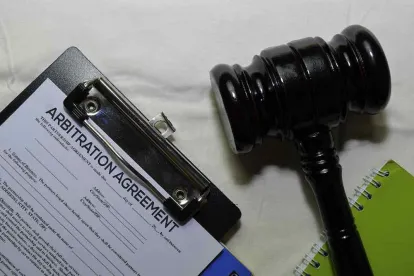In a recently issued 8 to 1 Decision in Viking River Cruises, Inc. v. Moriana, the United States Supreme Court held that individual claims based on the “only in California” Private Attorneys General Act (PAGA) may be compelled to arbitration. For those unfamiliar with the California PAGA statute, it is a unique state law that empowers employees to act as private attorneys general or agents of the state to bring civil lawsuits on behalf of themselves, other aggrieved employees, and the State of California for various Labor Code violations.
In Viking River Cruises, a former sales agent, Angie Moriana (Moriana), agreed to arbitrate all disputes arising during her employment relationship and waived her right to bring class-wide, representative, or PAGA claims. However, despite her agreement, after her employment ended, Moriana brought a PAGA claim against her employer in state court in California, alleging various Labor Code violations affecting her and other aggrieved employees. The Court of Appeal found Moriana’s arbitration agreement to be unenforceable and allowed the case to proceed forward in accord with the California Supreme Court’s decision in Iskanian v. CLS Transp. Los Angeles (2014) 59 Cal.4th 348, that attempted waivers of representative PAGA claims in an individual employee’s arbitration agreement were invalid because such claims could not be divided into “individual” and “representative” claims brought in separate proceedings. Thereafter, the US Supreme Court granted certiorari in Viking River Cruises to decide whether representative claims under PAGA can be compelled to individual arbitration.
US Supreme Court Finds That Individual PAGA Claims May Be Compelled To Arbitration
In Viking River Cruises, the Supreme Court specifically addressed the issue of whether the Federal Arbitration Act (FAA) required enforcement of a bilateral arbitration agreement with respect to an individual claim under PAGA and answered in the affirmative. In particular, the Court found that the FAA preempted the Iskanian decision “insofar as it precludes the division of PAGA actions into individual and non-individual claims through an agreement to arbitrate.” As a result of the Viking River Cruises decision, employers may now compel arbitration of an employee’s individual PAGA claim, and the remaining non-individual PAGA claims must be dismissed by the trial court because of the employee’s lack of statutory standing under PAGA without an individual claim.
Viking River Cruises is a significant decision for employers with California operations that currently (or will in the future) require employees to sign arbitration agreements as part of the employment relationship. Since its inception in 2004, PAGA has become yet another legal means in California by which plaintiffs can pursue compensation for alleged wage/hour violations without having to meet the specific criteria required in class actions, such as whether the employee’s claims are “common” to other employees in “law or fact” or that they are an “adequate representative” with claims/defenses that are “typical” of the putative class. Over the past nearly two decades, in attempted mitigation of PAGA claims, employers have responded by requiring employees to agree to waivers, essentially compelling PAGA claims to arbitration. However, as mentioned above, in 2014, the California Supreme Court issued its decision in Iskanian in which it found such agreements to be unenforceable and, thereafter, California appellate decisions consistently found that arbitration agreements could not compel an employee’s PAGA claim to arbitration. Tanguilig v. Bloomingdale’s, Inc. (2016) 5 Cal.App.5th 665, 678; Betancourt v. Prudential Overall Supply (2017) 9 Cal.App.5th 439, 445; Julian v. Glenair, Inc. (2017) 17 Cal.App.5th 853, 871.
However, in Viking River Cruises, the US Supreme Court has now clarified that employers with California operations may curtail or eliminate completely any exposure to PAGA in court by requiring employees to sign agreements to arbitrate their individual PAGA claims, thereby causing the employee to lose statutory standing for other remaining claims under PAGA.
What Does This All Mean For Employers With California Operations?
As mentioned above, in response to Viking River Cruises, the most important priority for employers with California operations should be to either create or update any arbitration agreements they have with their employees to assure that the language clearly compels the employees’ individual PAGA claims to arbitration. Notably, in concluding that Moriana’s individual PAGA claim was subject to arbitration, the Supreme Court relied, in part, on a severability provision in the arbitration agreement to narrow an otherwise invalid wholesale waiver of PAGA claims. Accordingly, post Viking River Cruises, as it is obvious that the courts will carefully scrutinize the express language of the employees’ arbitration agreement before deciding to compel arbitration of individual PAGA claims, careful consideration should be given by employers to use precise language in their agreements that does not waive the employee’s ability to bring their individual claims in arbitration.
Moreover, employers should also be aware of (and plan appropriately for) the observations made by Justice Sonia Sotomayor in her concurring Opinion that: (1) the California courts may still decide that the US Supreme Court’s understanding of this aspect of California law is incorrect and thereby “have the last word” on the issue; and/or (2) the California legislature may amend the “scope of statutory standing under PAGA within state and federal constitutional limits.” In fact, one of the potential amendments to the PAGA statute already being contemplated by several California legislators would be to grant standing to employees to bring collective action claims on behalf of the state and similarly-situated employees. As a result, although Viking River Cruises is definitely a win for employers with California operations, it may very well be a fleeting one.
Finally, it is also noteworthy that interested California employer groups have recently announced that they have obtained the required signatures necessary to place the “PAGA-Fix” Ballot Initiative (aka the “Californians for Fair Pay and Employer Accountability Act”), which would completely repeal the PAGA statute on the ballot in 2024. According to those supporting this initiative, its passage would “put workers’ claims back in the hands of the independent regulator, protect workers’ rights, and stop the endless shakedowns of small businesses” with California operations.
The bottom line is that, for each and all of these reasons, employers, desiring to put themselves in the best position following the Viking River Cruises decision, are urged to immediately contact their favorite labor and employment counsel to either create or review their current arbitration agreement.




 />i
/>i
